During the summer before my own seventh grade year, my father and I made a canoe trek up the Oswegatchie River in the western Adirondacks of northern New York. My dad grew up on the banks of the river, learning from his father how to fish for trout, and then, with his own children, made regular visits to teach us and to share the area’s profound beauty and peace. This particular trip, however, coming shortly after my twelfth birthday, was special. Like my brother before me, I would be paddling the twelve miles up the Oswegatchie with my father to High Falls, where we would set up camp by a lean-to, fish, swim, and watch the stars. The timing was significant. I was moving from sixth grade to seventh, from middle school to junior-high. I’d be experiencing greater freedom, switching classrooms and competing in interscholastic sports. I’d be given greater responsibilities. I’d be taking a big step closer to manhood, but there was, of course, still much for me to learn and much for me to prove. For the boys in our family, the Adirondack canoe trek was a major rite of passage.
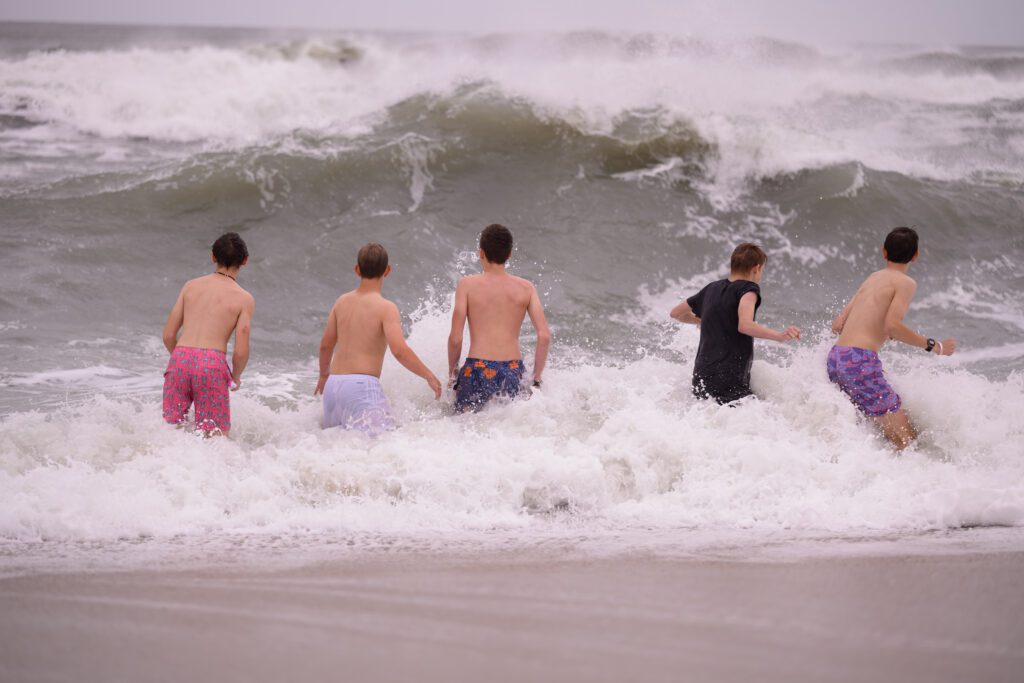
The Rite of Passage seems to be a dying institution in our culture. I won’t hazard a hypothesis as to why, other than to say that much of the blame probably rests on the shoulders of us over-scheduled/over-scheduling parents, but rites—like the one my dad took us on—are becoming the exception rather than the rule. Usually when we hear the term used, it is actually referring to some milestone event like a graduation ceremony or a particular birthday. And while these ceremonies must certainly be considered “rites” in the basic sense of the word, most of them have lost their meaning because of the loss of the “passage.” When we place such low expectations on young people as we do, when we give them so few opportunities for authentic challenge and failure, when we allow them to advance from one station in life or one grade level to the next based solely on the passing of time, there is not much else that the person has passed through, or had passed on to them.
As parents, and indeed as schools, we have a tremendous opportunity and responsibility to create authentic rites of passage for our children. The milestones we celebrate will be so much more meaningful when there was some ordeal, some gauntlet passed through in order to reach them. In schools, of course, these challenges should have an intellectual nature, but we can’t honestly say that we are graduating young men if they haven’t also passed through physical hardships.
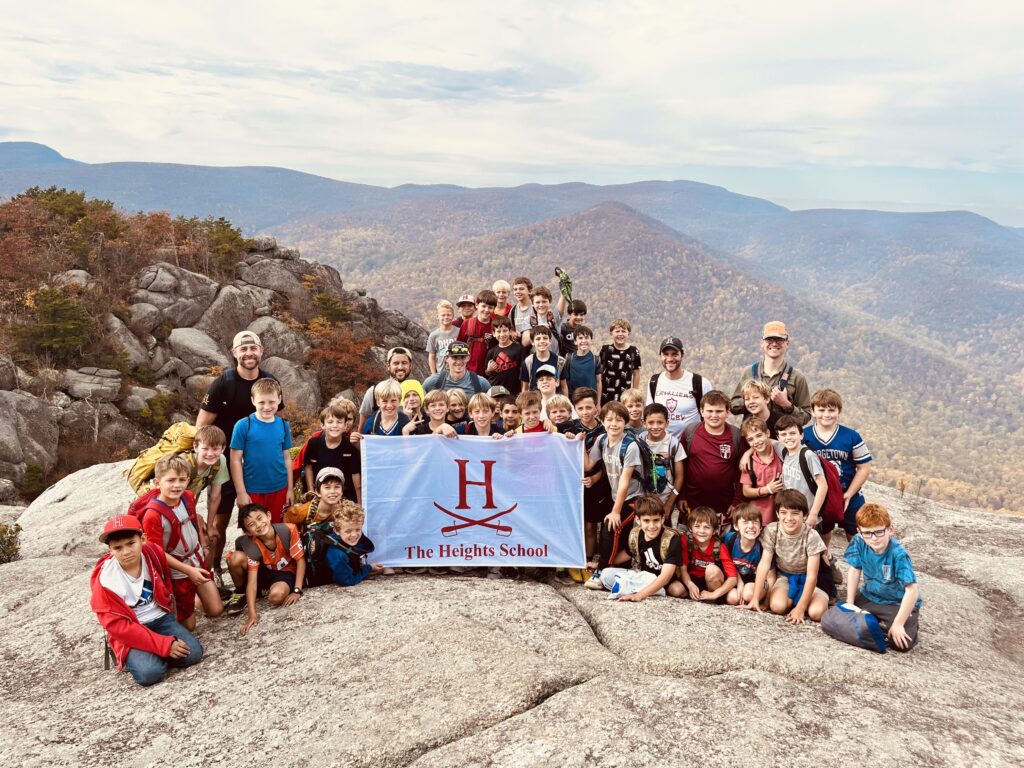
Rites of Passage at The Heights
At The Heights, our physical rites of passage generally take the form of treks and camping excursions. In a culture that promotes comfort and convenience and which shuns risk and physical labor, getting out into the wild (or, as wild as logistically possible in the D.C. area) is one of the best ways for our boys to experience the kind of discomfort and, to some extent, suffering, that will allow them to grow in fortitude. Camping challenges them to show their toughness and to grow in it. It also offers them an opportunity to take real responsibility for themselves and for others. Boys need this chance to “do for themselves” in concrete and physical ways; learning to provide while they are boys, as they must when they are men. Working in this way not only gives the boys confidence in their own abilities, but also provides for us teachers and parents a chance to see them in a different light. I will never forget the moment from an end-of-year camping trip when my colleague saw his mentee, a boy who basically refused to take responsibility for any of his academic work or class materials, perfectly set up his own tent in record time before moving on to help numerous classmates with theirs, and then manning the grill to help cook for the group. We learn so much about our boys when we see them in the light of the great outdoors. We must allow ourselves to be inspired by their goodness, just as much as we hope, on such trips, to inspire them and to open their eyes to the beauty of the created world.
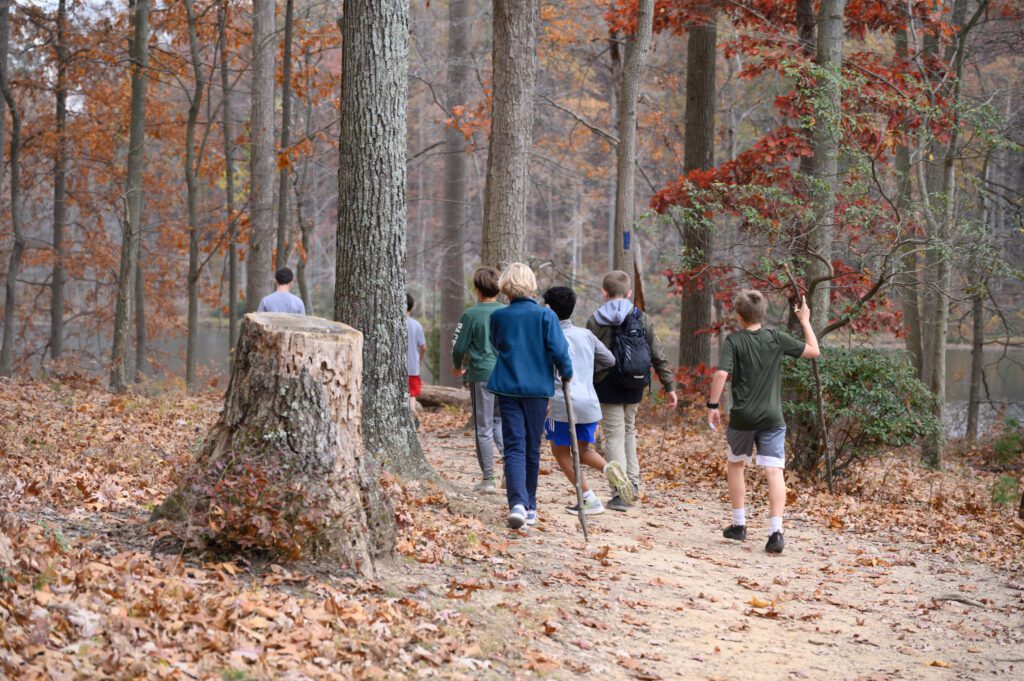
So these three things, challenge, responsibility, and inspiration, are what we try to give our boys during each camping trip. Often these occur naturally in the proper setting, but we must be intentional about our expectations and our activities. Of course the challenge has to be conquerable, but I think we are usually far too ready to focus on the attainability of such goals and less focused on creating authentic challenges. I’ve been encouraged by a relatively new rite of passage from our fourth grade’s end-of-year camping trip. On the second morning of their expedition, the teachers lead the boys on a one-mile sunrise hike/run through dewy fields of fourth-grader-shoulder-height grasses before plunging into the cool waters of a mountain stream to reach a “rock of triumph,” all before breakfast. There has certainly been some grumbling and even tears from the sleepy nine-year-olds, but they all rose to the challenge and conquered their comfort.
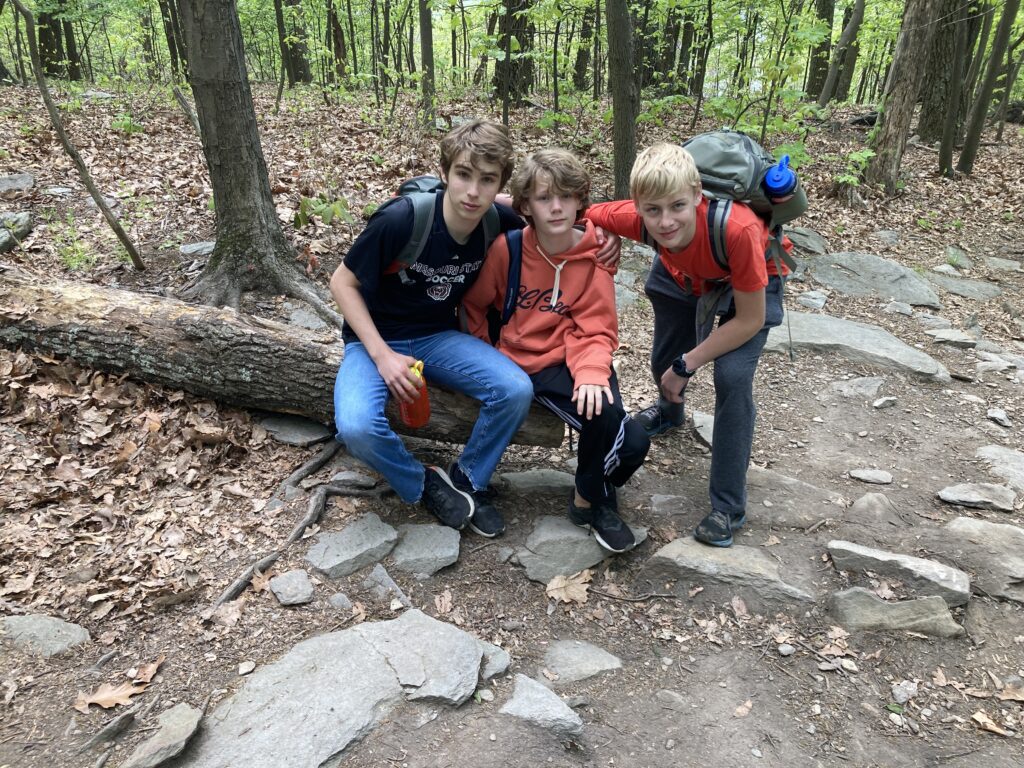
On our annual seventh grade trip to Assateague Island, the boys are in charge of making camp and preparing our meals on the beach. They set up their tents (significantly more difficult while withstanding coastal winds and trying to bury their stakes in shifting sands), build the bonfire in the massive fire pit they dug themselves, and cook their own red meat dinner. They also provide the campfire entertainment of songs, jokes, and ghost stories, though the teachers usually can’t resist contributing a few of our own favorites as well. And after the s’mores are eaten and the songs are sung, when the winds inevitably whip up to near-gale force and tent poles begin to bend and break, the boys are responsible for, again, setting up their tents, or for helping their newly tent-less classmates find new lodging. It’s not comfortable, it’s not convenient, but being a man seldom is.
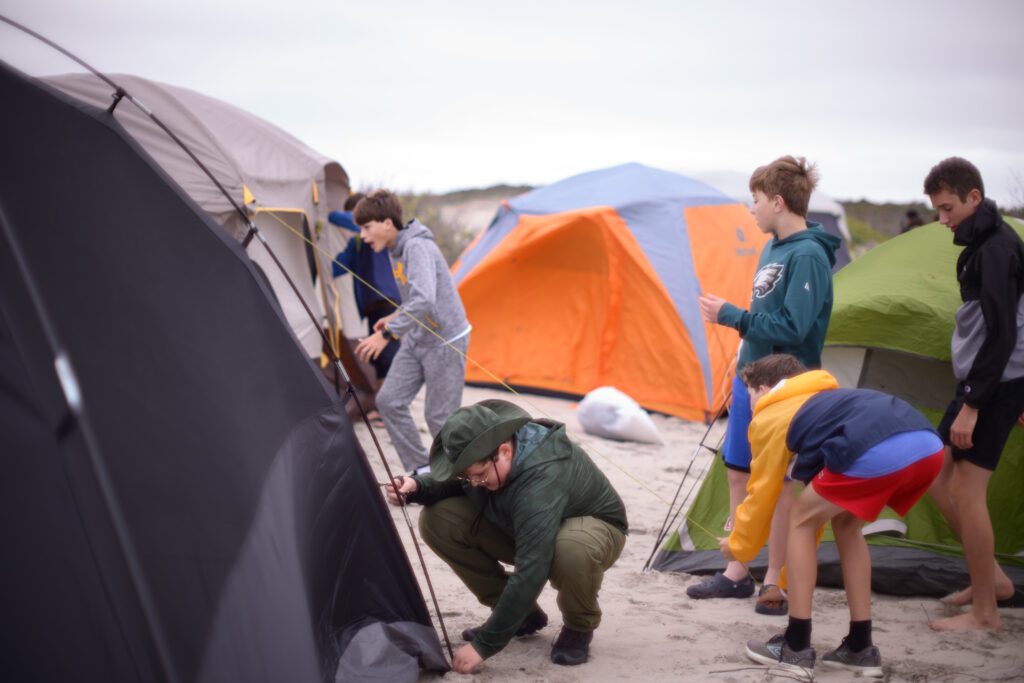
It is in such settings that friendships are formed and deepened. When absent are the distractions of the workaday life and only one task lays before us—splitting wood, staking a rain cover, putting one foot in front of the other on a hike—that is when a boy most readily opens himself up to his friend. (Relatedly, this is why most mentoring at The Heights is done while taking a walk.) The best outcome from this past year’s inaugural eighth grade bike trek to Harper’s Ferry was not the fact that every single boy completed the forty-five-mile course and then hiked six miles on the Appalachian Trail the next morning, or that they stepped into the history of the C&O Canal and the Civil War in the Potomac River Valley. The best part was that you could see the bonds strengthening between these young men, on the verge of entering high school together, and the care that they took of one another. That is what we want them passing into. What kind of man doesn’t care for his fellow man?
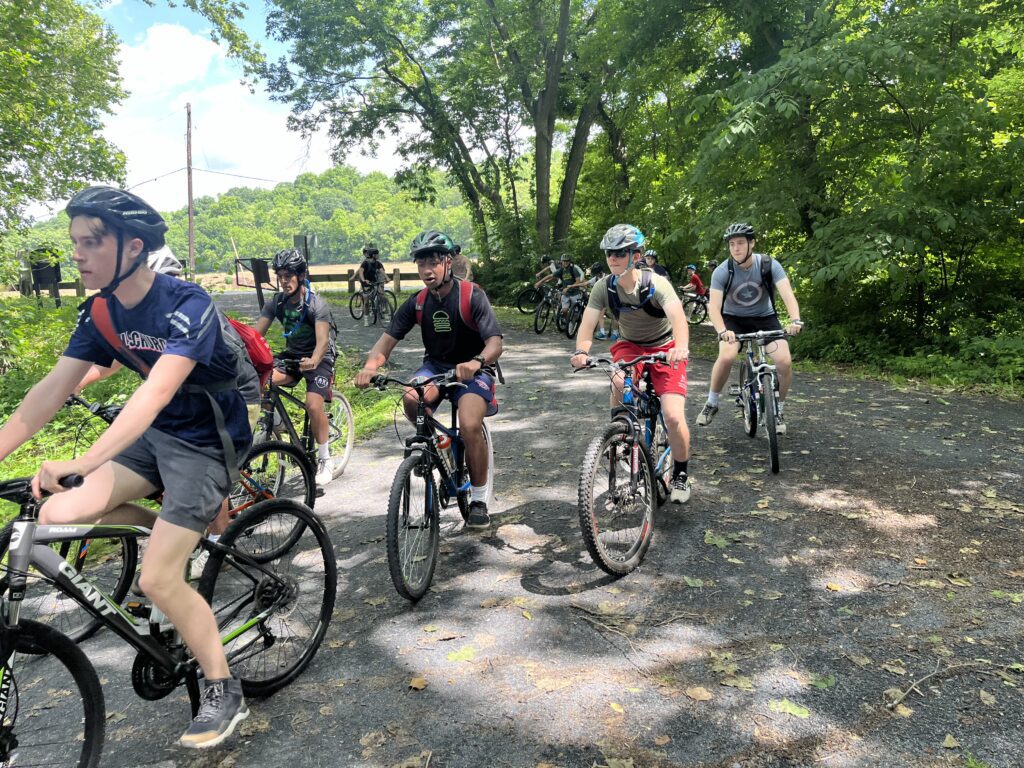
Finally, in undertaking these excursions, in taking time away from important matters in the classroom, the office, or at home, we try to open ourselves up to—indeed we are actively seeking—inspiration. “Wonder,” “Silence,” and “Adventure” have all been spoken and written about at great length here on the Forum because they are essential to human formation. These can be sought and found in a variety of places, at home and abroad, in the classroom and in the field, on the page, in the chapel, in the heart. But we all know that some of the readiest sources of wonder and inspiration are to be found in nature. The summer adventures of the Heights West and Heights Frontiers programs to Yellowstone, the Grand Tetons, the Minnesota Boundary Waters, and the Rocky Mountains bring our boys face-to-face with sights and places that inspire true awe. This is the world our boys are passing into; it is majestic, it is beautiful, it is wild. It is theirs to explore and to cultivate. To fill and to subdue. It is theirs to wonder at because it is their inheritance from their Father. For them to know their place in it, they need to encounter it and to know it. They need to survey the grounds, to know them intimately, to love them, and to become their stewards.
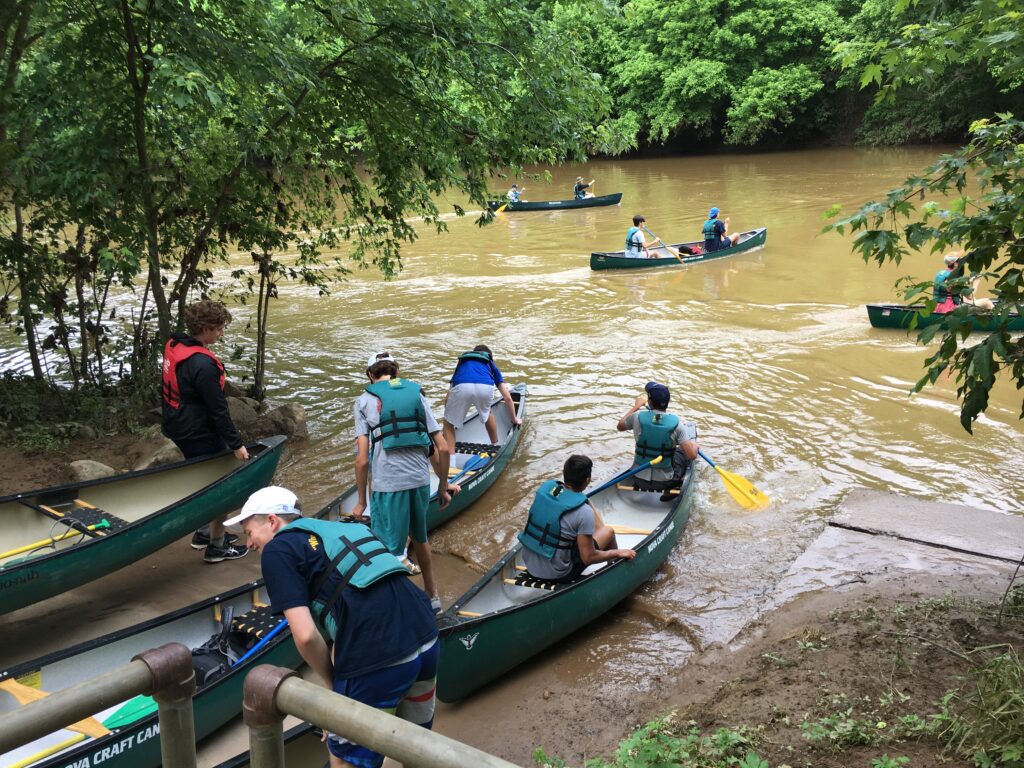
Some Practical Takeaways
To conclude, I’d like to make a plea and a few suggestions. Reclaim and reinstate the rite of passage in your family. Wherever you live and whatever age your son is coming into, find a trek that would challenge him, that would be an appropriate trial for him to go through before entering into the next stage of maturity. Create a tradition, like my dad did for us, maybe before elementary school, middle school, high school, and college. Your younger children will look forward to the day when they complete the course that their older siblings conquered. Make sure that the treks are individual experiences, where it’s just father, son, and nature. You might plan some topic of conversation, like service, responsibility, sacrifice, or pure love. Maybe at the end, or when you return home, you can present to him some symbol of your heightened trust and their increased responsibility, some memento from the trek—a pocket knife, fishing pole, hatchet, tent, or bicycle. Most importantly, though, just go for it. Don’t let the perfect get in the way of a great trip. After all, we’re talking about camping, and camping, like life, never works out exactly as planned. No matter what you plan, no matter where you go, your son will never forget the experience of this rite of passage. He will grow in responsibility, in fortitude, and in wonder. He will grow toward a greater friendship with you. And, importantly, he will grow in the confidence that you trust him to face the challenges that lie ahead.

